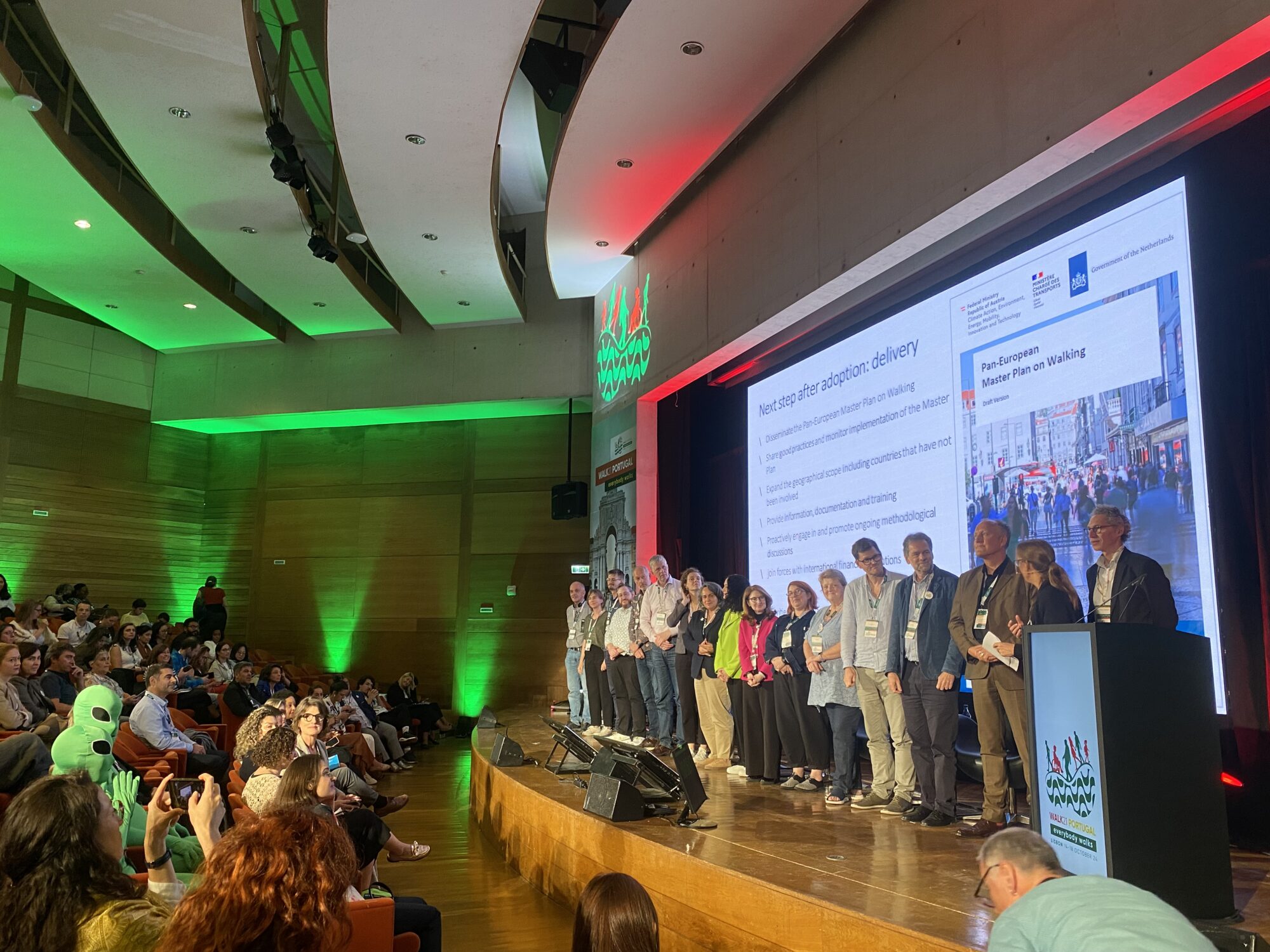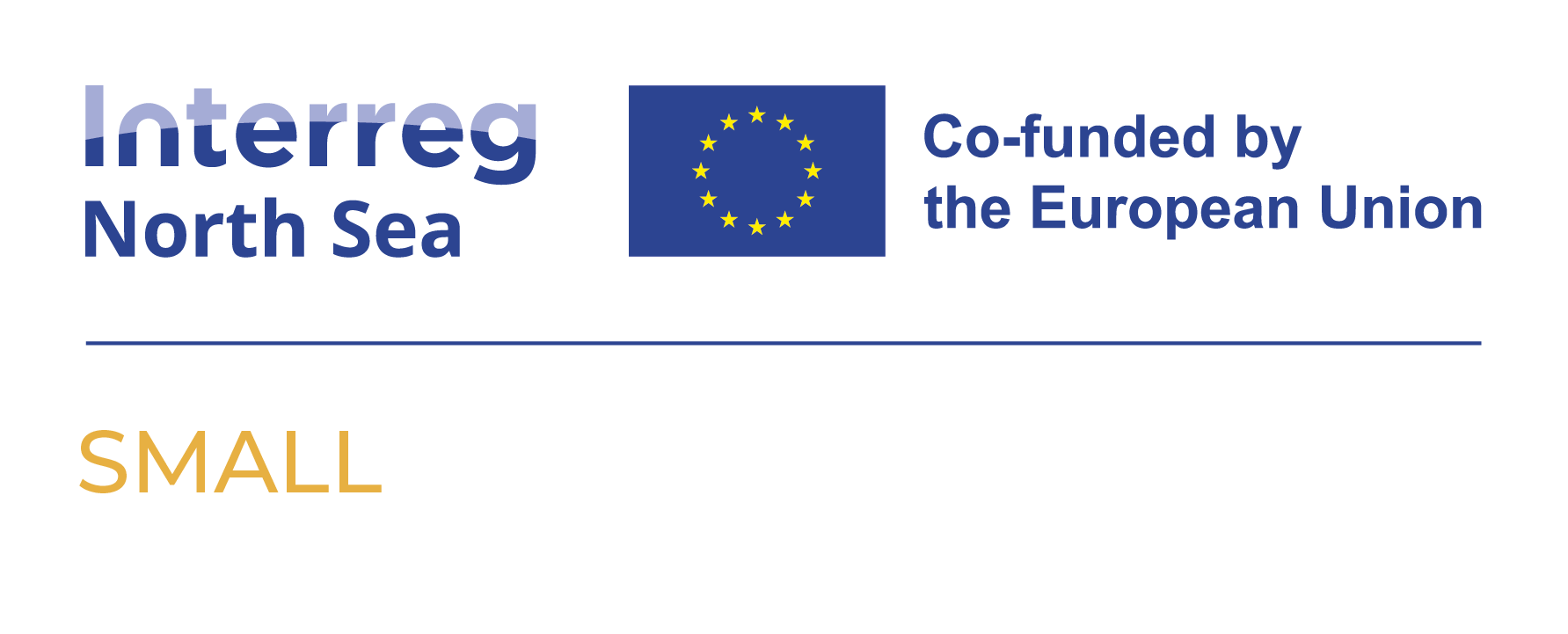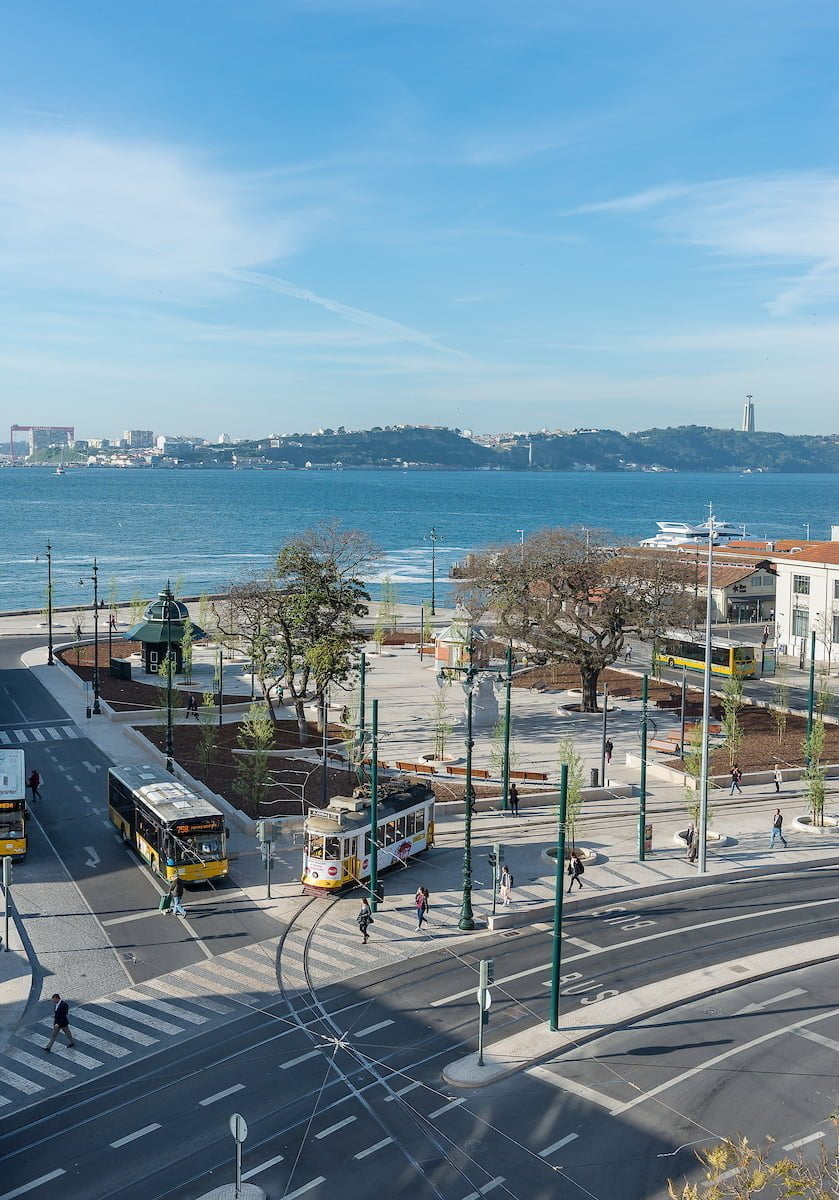Walkability for a more inclusive future takes centre stage at Walk21 Portugal
On 14-18 October 2024, Walk21 Portugal convened advocates, urban planners, and specialists worldwide to talk about the future of walkability. POLIS joined in by organising two sessions focusing on pedestrian safety and inclusive mobility—read more below.
Walk21 Portugal, the 24th International Conference on Walking and Liveable Communities hosted by the Institute of Mobility and Transport on behalf of the Government of the Portuguese Republic in partnership with the City of Lisbon, brought together global experts, urban planners, and advocates to discuss the future of walkability. Over four days, sessions with unique formats revolving around walking delved into key themes like inclusive mobility, safe infrastructure, liveability, and developing comprehensive pedestrian networks.
POLIS was thrilled to participate in the global flagship event promoting walkability to deliver safer, healthier, and more inclusive communities in our cities.
Day 1-2: Setting the scene for change
The conference started with a wide array of workshops, learning labs, and training sessions focused on all the different aspects of walking. These sessions examined integrating inclusivity into traffic rules, improving pedestrian networks, and developing school streets. Attendees also discussed how citywide programs could scale up walkability efforts and create national walking policies to promote active transport.
POLIS organised a training session, with the support of iRAP, to discuss ‘Pedestrian safety: assessment, planning and design,' having the EU-funded projects PHOEBE and ELABORATOR showcasing their approaches, frameworks and tools. This session allowed for some interactive exercise with participants, inviting them to reflect on their challenges and needs in assessing and improving the safety of pedestrians in their own context.

Andréia Lopes Azevedo, Active Travel & Health Cluster Lead at POLIS presented during the 'Pedestrian safety: assessment, planning and design' session.
From the experience of POLIS and iRAP, and the two projects, the session offered a glimpse of the tools that are available and still in development, highlighting the importance of infrastructure, organisational and professional capacity, behaviours, reliable data, adequate design and enforcement in supporting coherent policies and practices that will increase the safety of people walking and create safer and more accessible urban environments. This was an opportunity not only for participants to learn from the speakers and projects but also the other way around, where the different contexts and experiences will enrich the work being developed within PHOEBE, ELABORATOR and beyond.
The second day began with the opening plenary ‘Everybody Walks’ featuring high-profile speakers such as Cristina Pinto Dias, Portugal’s Secretary of State for Mobility, and João Jesus Caetano, President of Portugal’s Institute of Mobility and Transport. Both emphasised the importance of prioritising pedestrians in urban design and outlined Portugal’s national efforts to promote walking, to increase pedestrian activity for daily commutes, school trips, and leisure activities.
Sónia Lavadinho, Founder of Bfluid Research, presented her research on the relational city, providing food for thought on how we can reimagine our urban spaces, shifting perspective away from functions and more towards our relationships with people and nature, and how improving walkability lies at the centre of this thinking.
Throughout the day, experts across the mobility sector shared their experiences on reducing carbon footprints through pedestrian-friendly designs and how cities can use global tools to enhance urban walkability. Discussions in different sessions sparked lively debates on how walking can play a key role in combating climate change and shaping future urban landscapes, as well as how integrating walking into city planning could drive environmental and social change.
Day 3-4: Inclusion takes centre stage
Inclusivity in walkability was at the heart of the conference. Day 3 opened with a plenary session focusing on 'The Essential Role of Inclusivity in Walkability’, with experts from Portugal, Brazil, and the UK tackling how to design streets that cater to everyone, regardless of age, gender, or ability. Indeed, Clarisse Cunha Linke, Country Director at the Institute for Transportation and Development Policy, addressed the need for more intersectional approaches in mobility projects, detaching from false visions of universality and addressing the needs of different citizens. She invited attendees to reflect on how different people experience the city and their mobility needs, instigating the audience to imagine a city of care, which would welcome and cater for the people who care for others and are usually unseen and unheard in planning processes and in the urban space. Opening up the spaces of knowledge and decision-making to reflect all these differences will transform walking from a burden to a comfortable and safe choice for all.
POLIS, representing the Interreg North-Sea project SMALL, organised an interactive session on ‘Shared mobility, walking, and wheeling’, together with the Active Cities project. Through the unique Weeting ('Walking Meeting') format, participants were invited to explore and critically assess the area around the conference's venue through an inclusive mobility lens.
Attendees were paired and assigned a specific persona representing the profile of a user with reduced mobility, prompting them to start thinking about what these users might need in their mobility journeys. Through a short walk and a checklist with different categories of what makes shared mobility, walking, and wheeling accessible, participants reviewed what was working and what was missing. Indeed, findings from the session revealed that there is still much that needs to be done, such as adding more ramps for people with wheelchairs, better wayfinding and pavements, providing easily accessible information on how different users can make their journeys and more.
On the closing day of the conference, it was also the moment to announce the soon-to-be approved Pan-European Master plan on Walking, a document that THE PEP Partnership on Healthy Active Mobility has been working on in the last few years. POLIS is part of the group of THE PEP representing the interests of cities and regions, together with representatives from member states and other institutions. This document, together with the Pan-European Master Plan for Cycling Promotion, represents a key high-level understanding of the relevance of active mobility in improving mobility, environment and health in Europe, with clear topics and objectives for action. The POLIS Active Travel & Health Working Group has been closely supporting this work and will follow the actions once the Pan-European Master Plan on Walking is officially approved.
Overall, with its diverse sessions and global perspectives, the Walk 21 Conference was a unique opportunity to discuss how we can pave the way for more walkable, inclusive, and sustainable cities. Participants had the opportunity to learn about case studies aiming to address barriers to walking from all around the globe, starting from the host country, Portugal, to France and the UK, but also beyond Europe, looking to the US, Latin America, and Africa. It was a moment to celebrate the power of walking and reflect on the work that still has to be done to fully unlock this power for everyone; as the conference's motto said, “Somos todos peões, Everybody walks”. Now, we need to reflect and confront our notions of everybody.






